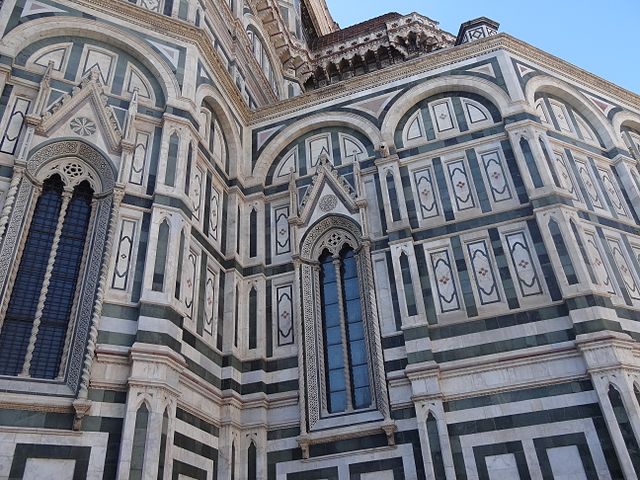 Very few of my friends—I, least of all—correctly predicted Donald Trump’s victory in the polls. The handful who gave him a good chance of winning did so in the wake of Brexit, with a view to the parallel factors both elections shared. The exception in my life is my friend Chris Kutarna. Here he is on stage in June 2016, having been asked whether Trump will become President. His answer: “The history of the Renaissance says, Yes.”
Very few of my friends—I, least of all—correctly predicted Donald Trump’s victory in the polls. The handful who gave him a good chance of winning did so in the wake of Brexit, with a view to the parallel factors both elections shared. The exception in my life is my friend Chris Kutarna. Here he is on stage in June 2016, having been asked whether Trump will become President. His answer: “The history of the Renaissance says, Yes.”
The lens through which Kutarna analyses our time is the period of history when Classical Greek and Roman ideas were revived and built upon during a rare peace time among the Italian states. He argues in Age of Discovery that, 500 years later, we are now living in a second Renaissance.
If your image of the Renaissance comes from the Netflix original series Medici: Masters of Florence, you may be missing the parallels with our post-truth world of Fox News and xenophobia. But with great technological, scientific and artistic innovation comes social stress that manifests itself in populist revolts, like the Bonfire of the Vanities and Brexit. The politics of fear emerge, perhaps in the form of the Inquisitions—an effort to purge Christian Europe of Muslim and Jewish influence—or in the form of bigoted executive orders from the pen of an outsider politician.
Substitute Zuckerberg for Guttenberg and you have parallel communication technologies democratizing speech and boosting literacy. (For all of our public education woes, this next will be the first global generation in history to enjoy near universal literacy. That means almost all of our young geniuses will have access to the wider pool of ideas—a very new situation.) The factory workers of today made obsolete by mechanization can commiserate with the many Renaissance scribes replaced by the printing press.
 The scientific insights of Copernicus, Da Vinci and others were stunning in their elegance, but Kutarna argues that the computer has been more impactful to astronomy than the telescope; to biology than the microscope; or to physics than the particle accelerator—all analog instruments.
The scientific insights of Copernicus, Da Vinci and others were stunning in their elegance, but Kutarna argues that the computer has been more impactful to astronomy than the telescope; to biology than the microscope; or to physics than the particle accelerator—all analog instruments.
If the Renaissance is the milestone when Medieval became Modern, it’s not clear what our time, once our paradigms have finished shifting, will become. The way forward is an open question, subject to a contest of narratives. Renaissance men of the 1500s, with their newfound ideas of individualism, would tell us that history is ours for the making. It’s a lesson we’ve evidently forgotten—the responsibility of each generation to renew our democratic, scientific and cultural institutions.
If history is circular, the question becomes whether that dooms us to repeat the worst of our mistakes or whether our running track can become a spiral staircase. We can respond to the troubles of our time in the same way that the Sultan Bayezid II of the more-cosmopolitan Ottomans did during the Inquisitions, when he sent ships to Spain to take in persecuted Jews. The Catholics had “beggared their own country and enriched mine,” said he. And we can reach into the past, as the men of Florence did, to revive the virtues that thriving societies have been built upon in the past: civility, audacity, dignity, honesty and proportion.
Kutarna urges a deeper investment in that process of debate and creation. He cites the example of one Ottoman Turk decision that was not quite as progressive. The printing press was banned, and its absence contributed to the Arab world losing their dominance scientifically in the subsequent century. To this day, 500 years after that policy decision, less than half of one percent of book titles have been translated or published in Arabic. With a broader lens, we can start to interrogate our current policy decisions with an eye to how they will set our societies on a different path, for which our descendants will either thank or curse us in the year 2517.
Images: Jordiferrer – Santa Maria de Fiore (Florence)
Bronzino, Portrait of Francesco I de’ Medici (1551)
One thought on “Our déjà vu moment in history”
Comments are closed.